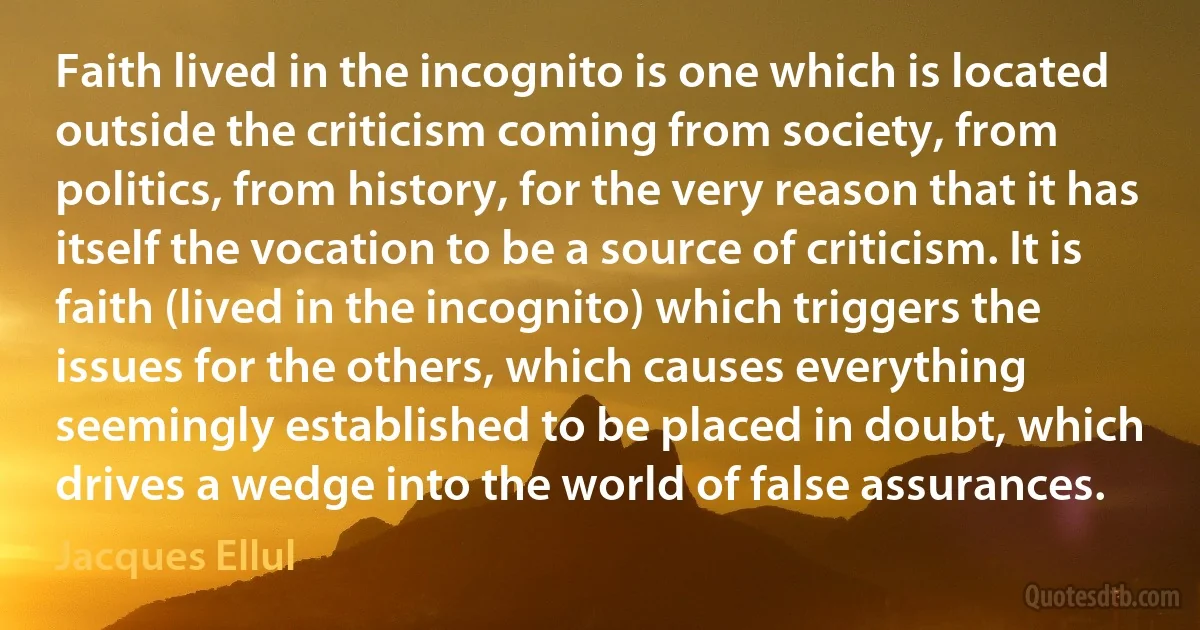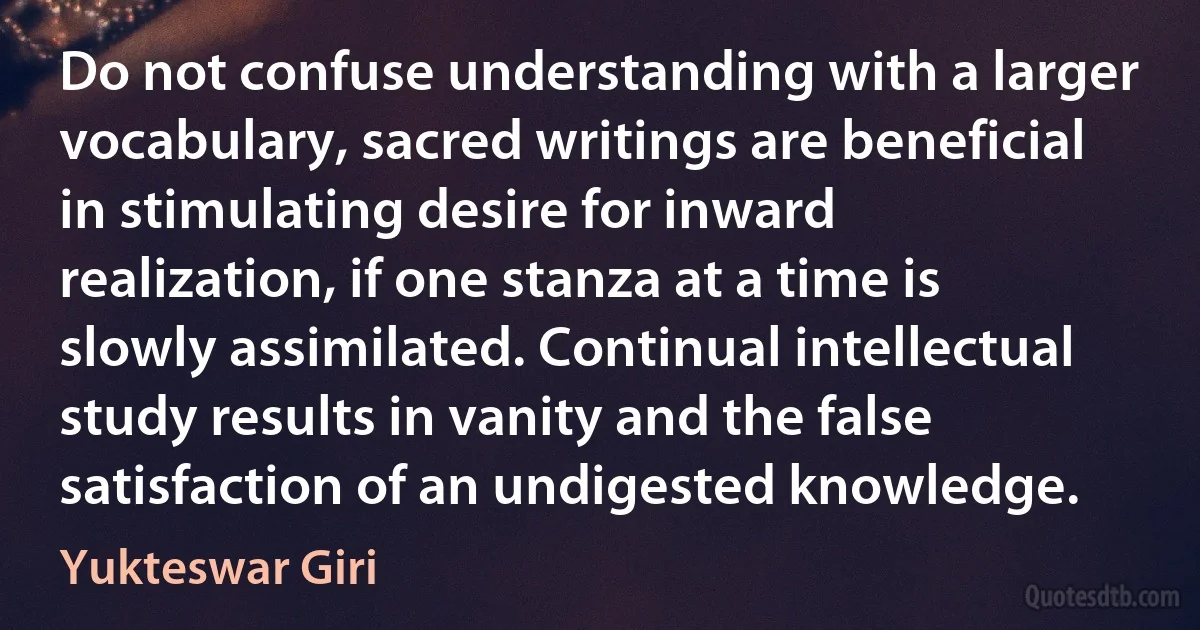False Quotes - page 7
Let us imagine that the aboriginal-original human specimen was one of two brother apes, A and B; they were alike in every respect; both were animal space-binders; but something strange happened to B; he became the first time-binder, a human. ... He had thus a new faculty, he belonged to a new dimension; but, of course, he did not realize it; and because he had this new capacity he was able to analyze his brother "A"; he observed "A is my brother; he is an animal; but he is my brother; therefore, I AM AN ANIMAL." This fatal first conclusion, reached by false analogy, by neglecting a fact, has been the chief source of human woe for half a million years and it still survives. ... He [then] said to himself, "If I am an animal there is also in me something higher, a spark of some thing supernatural."

Alfred Korzybski
Every failure is a step to success. Every detection of what is false directs us towards what is true: every trial exhausts some tempting form of error. Not only so; but scarcely any attempt is entirely a failure; scarcely any theory, the result of steady thought, is altogether false; no tempting form of Error is without some latent charm derived from Truth.

William Whewell
A party should not contain utterly incongruous elements, radically divided on the real issues, and acting together only on false and dead issues insincerely painted as real and vital. It should not in the several States as well as in the Nation be prostituted to the service of the baser type of political boss. It should be so composed that there should be a reasonable agreement in the actions taken by it both in the Nation and in the several States.
Judged by these standards, both of the old parties break down.

Theodore Roosevelt
But this same process of the old teaching the young can also cause errors and false conclusions to accumulate with the passage of time. One should therefore study ancient writings, not so much in the hope of finding lost wisdom as in the hope of locating the origin of errors that have been, and still are, accepted truths.

Carl Eckart
Every one of us knows how painful it is to be called by malicious names, to have his character undermined by false insinuations, to be overreached in a bargain, to be neglected by those who rise in life, to be thrust on one side by those who have stronger wills and stouter hearts. Every one knows, also, the pleasure of receiving a kind look, a warm greeting, a hand held out to help in distress, a difficulty solved, a higher hope revealed for this world or the next. By that pain and by that pleasure let us judge what we should do to others.

Arthur Penrhyn Stanley
Magic is that which it is; it is by itself, like the mathematics; for it is the exact and absolute science of Nature and its laws.
Magic is the science of the Ancient Magi: and the Christian religion, which has imposed silence on the lying oracles, and put an end to the prestiges of the false Gods, itself reveres those Magi who came from the East, guided by a Star, to adore the Saviour of the world in His cradle.

Albert Pike
I have been trying to point out that in our lives chance may have an astonishing influence and, if I may offer advice to the young laboratory worker, it would be this-never neglect an extraordinary appearance or happening. It may be-usually is, in fact-a false alarm that leads to nothing, but may on the other hand be the clue provided by fate to lead you to some important advance.

Alexander Fleming
The auspices for philosophy are bad if, when proceeding ostensibly on the investigation of truth, we start saying farewell to all uprightness, honesty and sincerity, and are intent only on passing ourselves off for what we are not. We then assume, like those three sophists [Fichte, Schelling and Hegel], first a false pathos, then an affected and lofty earnestness, then an air of infinite superiority, in order to impose where we despair of ever being able to convince.

Arthur Schopenhauer
Man is in pursuit of two goals: he is looking for happinesse and, being by essence empty ("étant vide par essence", Fr.), he is trying to fill (or take up, - "remplir", Fr.) his life; the latter reason play a more considerable role than we ordinarily think. What we take for vainglory, ambition, love of power and riches (or wealth), is often, indeed, a need to mask this emptiness, a need to let one's hair down (or to live it up), to put oneself on a false scent or trail.

African Spir



